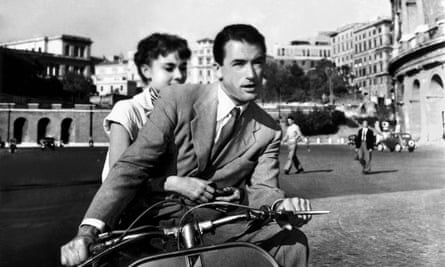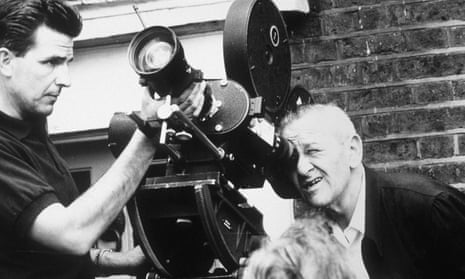William Wyler, the director whom Bette Davis once described as the most accomplished filmmaker the American cinema ever produced, has died after suffering a heart attack at his Los Angeles home. He was 79.
He returned only last weekend from a visit to Europe, during which he gave a Guardian Lecture at the National Film Theatre in London.
Born in Alsace, Wyler went to the United States in 1922 after being offered a job as general assistant at Universal Pictures, then headed by Carl Laemmle, a distant cousin of Wyler’s mother. He graduated to directing two-reel Westerns, and in 1925 made his first feature.
Between then and 1970 he made some 40 films, but it was in the mid-thirties, in a run of pictures produced by Samuel Goldwyn, that his reputation became firmly established.
These notably included Dead End, which made a star of Humphrey Bogart, Wuthering Heights, with Laurence Olivier as a memorable Heathcliffe, and The Little Foxes, which gave Bette Davis perhaps her most notable screen role.

His wartime tribute to Britain, Mrs Miniver, is hardly now remembered as among his best work, but it won for him the first of his three Oscars. The second came for his impressively humanist study of returning war veterans, The Best Years of Our Lives, and the third, some years later, for the super-spectacle Ben-Hur.
Wyler’s postwar career was qualitatively uneven, ranging from carefully mounted literary adaptation like The Heiress and Carrie to potboilers like The Desperate Hours. Probably his most wholly achieved later films were exercises in established genres, the Western The Big Country, and the musical Funny Girl, which provided a striking introduction to Barbra Streisand.
His final film, The Liberation of L.B. Jones, was a perhaps unexpectedly fierce indictment of racial bigotry in the American South.
Fredric March won an Oscar as best actor for his role in The Best Years of Our Lives; Charlton Heston won an Oscar for Ben-Hur and Greer Garson won the award for best actress for her role in Mrs Miniver.
Wyler was a perfectionist who frequently antagonised actors by demanding constant retakes, a reputation which won him the nickname “90-take Wyler.” There was no clear thematic or stylistic consistency in his work, but the absolute professionalism of the best of it assures him a lasting place in the American cinema’s hall of fame.

Comments (…)
Sign in or create your Guardian account to join the discussion